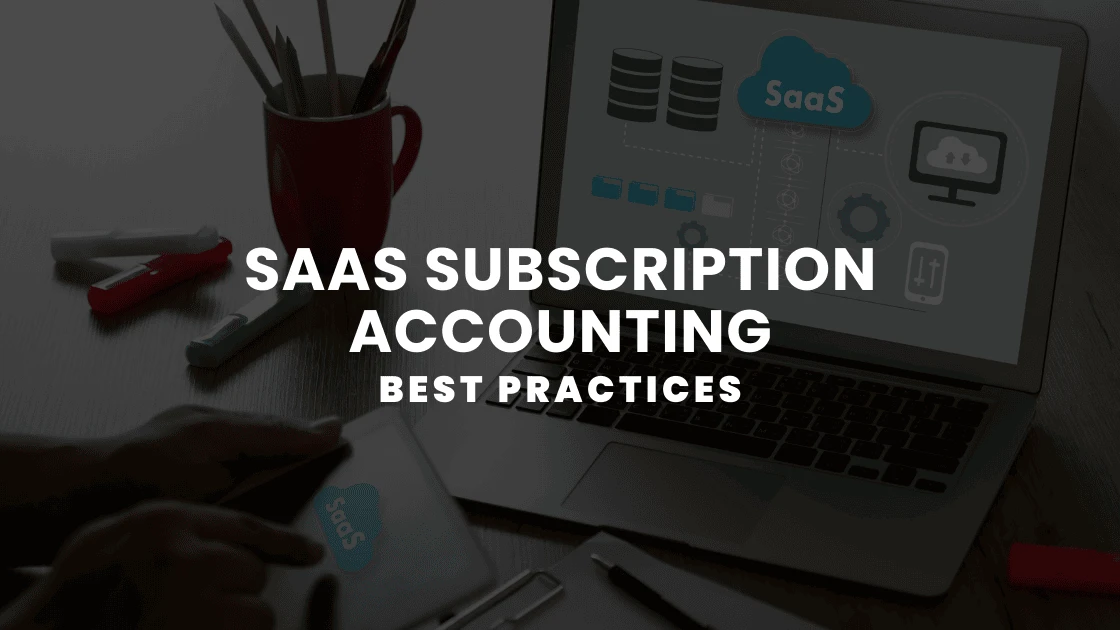August 28 2024 | By Shoaib Jamil | 8 minutes Read

The Importance of Accounts Payable Management
Key Strategies for Bettering Accounts Payable Management
1. Implement Automated Solutions
2. Establish Clear Policies and Procedures
3. Regularly Review and Reconcile Accounts
4. Enhance Communication with Suppliers
5. Leverage Data Analytics
How to Manage Accounts Payable Effectively
Using Technology for Accounts Payable Management
Electronic Invoicing (E-Invoicing)
Automated Payment Systems
Cloud-Based Accounting Solutions
Training and Development for Accounts Payable Teams
Importance of Continuous Learning
Onboarding and Ongoing Training
Skill Development
In a Nutshell
Effective accounts payable management is essential for any organization that wants to maintain its financial health. It involves the systematic process of managing and paying outstanding invoices, ensuring that obligations are met on time while maintaining accurate records.
Cleaning up your accounts payable management processes not only improves cash flow but also enhances operational efficiency and strengthens supplier relationships. In today’s competitive business environment, companies must prioritize their accounts payable processes to reduce costs, avoid errors, and foster better relationships with vendors.
While accounts payable might seem straightforward, it plays a significant role in a company’s financial stability. Poorly managed accounts payable can lead to strained supplier relationships, cash flow problems, and even legal issues.
On the other hand, effective accounts payable management can contribute to a company’s success by ensuring that cash flow is smooth and predictable, that suppliers are paid on time, and that financial records are accurate and up-to-date.

Managing payables effectively is more than just a routine task; it’s a strategic aspect of financial management. Proper accounts payable management helps organizations control cash flow, minimize errors, and avoid late payment penalties.
It ensures that all invoices are processed promptly and accurately, which in turn, helps maintain good relationships with vendors and suppliers. Effective management of accounts payable involves a clear understanding of cash flow, accurate record-keeping, and timely processing of payments.
At its core, accounts payable management is about ensuring that the company’s obligations are met on time. This involves tracking outstanding invoices, scheduling payments, and ensuring that all transactions are recorded accurately in the company’s financial statements.
A well-managed accounts payable process can provide significant benefits, including improved cash flow, reduced risk of late fees or interest charges, and better relationships with suppliers. Additionally, by managing payables effectively, companies can take advantage of early payment discounts and other financial incentives offered by vendors.
Adding more efficiency to your accounts payable management requires a combination of strategic planning, the adoption of modern technologies, and continuous process improvement. Here are some key strategies that can help organizations achieve this;
One of the most effective routes to accounts payable management is adopting automated solutions. Automation can handle tasks such as invoice processing, approval workflows, and payment scheduling, significantly reducing the risk of manual errors and speeding up the overall process.
Automated systems can also provide real-time visibility into the status of invoices, helping organizations manage their cash flow more effectively. By reducing the time and effort required to process invoices, automation allows the accounts payable team to focus on more strategic tasks, such as analyzing payment trends and negotiating better terms with suppliers.
To ensure efficient accounts payable management, it is crucial to establish and communicate clear policies and procedures. This includes setting guidelines for invoice approvals, payment terms, and reconciliation processes.
Having a standardized process in place ensures consistency and helps prevent delays and errors in the payment process. It is also important to review these policies regularly to ensure they remain relevant and effective as the business grows and evolves.
Consistent adherence to these policies can prevent delays and errors in the payment process, ensuring that invoices are processed and paid on time.
Regular review and reconciliation of accounts payable can help identify discrepancies and ensure that all transactions are accurately recorded. This practice also helps in detecting and addressing any potential issues before they escalate.
Regular reconciliation not only helps maintain accurate financial records but also provides an opportunity to review and optimize payment processes. For example, companies can analyze payment terms to determine if there are opportunities to negotiate better terms with suppliers or to take advantage of early payment discounts.
Maintaining open and transparent communication with suppliers is key to effective accounts payable management. This involves setting clear expectations regarding payment terms and deadlines, as well as promptly addressing any issues that arise.
Strong relationships with suppliers can lead to more favorable payment terms, discounts, and priority service. Additionally, good communication can help prevent misunderstandings and disputes, which can delay payments and damage relationships.
Data analytics can provide valuable insights into accounts payable processes, helping organizations identify trends, inefficiencies, and opportunities for improvement. By analyzing data on payment patterns, invoice processing times, and supplier performance, companies can make more informed decisions and continuously improve their accounts payable management.
For example, data analytics can help identify bottlenecks in the invoice approval process or highlight opportunities to, yet again, negotiate better terms with suppliers.
By focusing on these key strategies, organizations can improve their accounts payable management and boost overall operational efficiency.

Managing payables effectively requires a strategic approach and attention to detail. Start by implementing an accounts payable management system that aligns with your organization’s needs.
Ensure that all invoices are captured and processed promptly to avoid delays. Establish a process for reviewing and approving invoices to prevent unauthorized or duplicate payments. A well-structured accounts payable process should include the following components;
Ensure that all incoming invoices are captured and entered into the system as soon as they are received. This can be done manually or through an automated system. Automated systems can scan and capture invoice data, reducing the risk of errors and speeding up the process.
Establish a clear approval workflow to ensure that invoices are reviewed and approved by the appropriate personnel before payments are made. This helps prevent unauthorized or duplicate payments and ensures that all invoices are accurate and legitimate.
Schedule payments in a way that optimizes cash flow while ensuring that invoices are paid on time. This may involve taking advantage of early payment discounts or negotiating extended payment terms with suppliers.
Regularly reconcile accounts payable records with supplier statements to ensure that all transactions are accurately recorded and that any discrepancies are promptly addressed.
By integrating technology into your accounts payable management, you can reduce manual efforts, minimize errors, and ensure timely payments. Here’s how;
E-invoicing allows suppliers to send invoices electronically, directly to the buyer’s accounts payable system. This eliminates the need for manual data entry, reduces the risk of errors, and speeds up the invoice processing time. E-invoicing also provides real-time visibility into the status of invoices, allowing companies to manage their cash flow more effectively.
Automated payment systems can be used to schedule and process payments automatically, based on predefined criteria such as payment terms and due dates. This reduces the risk of late payments and ensures that invoices are paid on time. Automated systems can also help companies take advantage of early payment discounts, improving cash flow and reducing costs.
Cloud-based accounting solutions offer a range of benefits for accounts payable management, including real-time access to financial data, enhanced security, and the ability to scale as the business grows.
These solutions can integrate with other financial systems, providing a bird’s eye view of the company’s financial health and enabling more informed decision-making.
Here’s how training and development can play a vital role;
The way companies manage accounts payables is constantly changing, with new technologies and best practices emerging regularly.
By investing in continuous learning and development for your accounts payable team, you can ensure that they are equipped with the knowledge and skills needed to manage payables effectively.
When bringing new team members on board, it is important to provide extensive training on the company’s accounts payable processes, policies, and technologies.
Additionally, ongoing training should be provided to keep the team up-to-date with any changes or updates to the system.
Encourage your accounts payable team to develop skills in areas such as data analysis, negotiation, and communication. These skills can help them perform their roles more effectively and contribute to the overall success of the organization.
Working on accounts payable processes is a vital activity every business should perform each quarter if they want to achieve maximum efficiency and financial health. By implementing automated solutions, establishing clear policies, and utilizing technology where they can, organizations can better their accounts payable processes and ensure timely, accurate payments.
For more tips on improving your accounts payable management, feel free to reach out to our experts. Start working on your processes today to experience the benefits of a well-oiled accounts payable management system.
Don’t wait—take action now to transform your accounts payable process and ensure your business’s financial stability.
Subscribe for business tips, tax updates, financial fundamentals and more.
MORE BLOGS

Running a SaaS business can look simple from the outside. Customers sign up, pay monthly or yearly, and keep using the product. Quite straightforward, right? Behind […]
Learn More →
Revenue is the heartbeat of any SaaS business. But how and when that revenue shows up on your books can change everything, from investor confidence to […]
Learn More →
If you’re a small business, we will absolutely get it if you say you’re having a hard time choosing a payment platform for your company. And […]
Learn More →